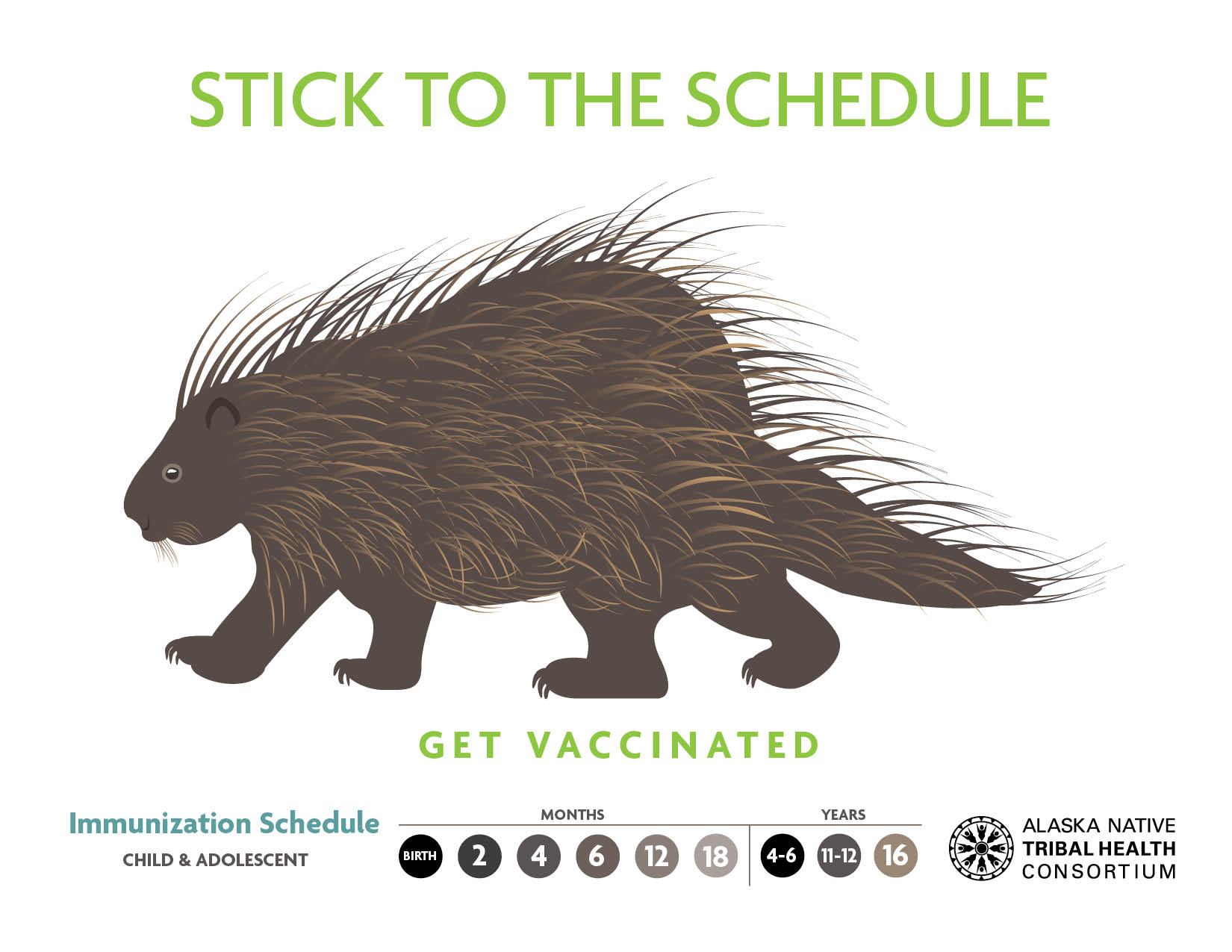Essential Guide To Immunizations: Protecting Your Health From Infectious Diseases

Protect Your Health with Immunizations - Source abernethylaurels.org
We put together this Essential Guide To Immunizations: Protecting Your Health From Infectious Diseases guide to help you make the right decision about whether or not to get vaccinated.
FAQ
This section provides answers to frequently asked questions regarding immunizations, helping clarify misconceptions and reinforcing their importance in safeguarding health.

Everyone is essential! Make sure your children get the essential - Source www.anthc.org
Question 1: Are vaccinations truly necessary in today's society, given the decline in certain infectious diseases?
Vaccinations remain vital even as specific infectious diseases become less prevalent. Immunizations establish a shield against vaccine-preventable diseases, safeguarding individuals and communities. Their absence could lead to a resurgence of these diseases.
Question 2: Can vaccinations cause autism or other developmental issues?
Extensive scientific research has consistently dismissed any link between vaccinations and autism or other developmental conditions. This myth has been thoroughly debunked by reputable medical organizations.
Question 3: Are there any risks associated with vaccinations?
While vaccinations are generally safe, mild side effects may occur, such as soreness at the injection site, fever, or headache. These reactions usually subside quickly and are far less severe than the diseases they prevent.
Question 4: Can individuals still get sick even after being vaccinated?
Vaccinations confer immunity but do not guarantee complete protection. However, they significantly reduce the likelihood of infection and, if contracted, lessen the severity of symptoms and complications.
Question 5: Are some vaccines more important than others?
All recommended vaccines are crucial for safeguarding health. However, specific vaccines may be prioritized based on age, health conditions, and exposure risks. Consult with healthcare professionals to determine the optimal vaccination schedule.
Question 6: What should individuals do if they have missed vaccinations?
It is never too late to catch up on missed vaccinations. Consult a healthcare provider to determine the necessary steps to ensure complete immunization. Remember, vaccinations are an essential part of maintaining good health throughout life.
Immunizations are a cornerstone of modern medicine, providing a safe and effective means to combat infectious diseases. By understanding the facts and dispelling misconceptions, individuals can make informed decisions to protect their health and the well-being of their communities.
To learn more about the importance of immunizations, visit the next article section.
Tips
Immunizations are a crucial aspect of maintaining good health and preventing the spread of infectious diseases. To optimize the effectiveness of immunizations, it is essential to adhere to certain guidelines and practices. This article will provide valuable tips to help you make informed decisions regarding immunizations.
Tip 1: Stay Up-to-Date:
Ensure you receive all recommended immunizations throughout your life. Consult with your healthcare provider to determine which vaccines are appropriate for your age, medical history, and lifestyle. Essential Guide To Immunizations: Protecting Your Health From Infectious Diseases
Tip 2: Maintain Immunization Records:
Keep a record of all immunizations received, including the type of vaccine, date of administration, and any adverse reactions experienced. This information is essential for tracking your immunization status and making informed decisions in future healthcare scenarios.
Tip 3: Educate Yourself:
Stay updated on the latest immunization recommendations and research by referring to reputable sources such as the Centers for Disease Control and Prevention (CDC) or the World Health Organization (WHO). Understanding the benefits and potential risks of immunizations will empower you to make informed choices.
Tip 4: Be Prepared:
Before receiving an immunization, inform your healthcare provider about any allergies, existing medical conditions, or immunosuppressant medications you are taking. This information will enable them to make the most appropriate decisions regarding vaccine administration.
Tip 5: Follow Up:
In some cases, multiple doses of a vaccine are required to achieve optimal protection. Adhere to the recommended immunization schedule and attend any necessary follow-up appointments to ensure complete immunization.
Tip 6: Protect Others:
Immunizations not only protect individuals but also contribute to herd immunity, which helps protect vulnerable populations who may not be able to receive certain vaccines. Getting vaccinated helps safeguard both yourself and the community.
Tip 7: Be Aware of Vaccine Efficacy:
Understand that no vaccine is 100% effective. However, immunizations significantly reduce the risk of contracting and developing severe complications from infectious diseases.
Tip 8: Consult a Healthcare Professional:
If you have any concerns or questions about immunizations, do not hesitate to consult with a qualified healthcare professional. They can provide personalized advice and help you make informed decisions regarding your immunization regimen.
Immunizations are a powerful tool for preventing serious and potentially life-threatening infectious diseases. By following these tips, you can optimize the benefits of immunizations and contribute to a healthier and safer community.
Essential Guide To Immunizations: Protecting Your Health From Infectious Diseases
Immunizations are a critical tool for protecting our health from infectious diseases. By stimulating our immune system, vaccines help us develop immunity to specific illnesses without actually contracting them. Essential aspects to consider include:
- Vaccine Types: Live, attenuated, inactivated, toxoid, and recombinant
- Immunization Schedule: Age-specific recommendations for optimal protection
- Vaccine Effectiveness: Variation in efficacy between vaccines and individuals
- Herd Immunity: The protective effect when a large population is immunized
- Contraindications and Precautions: Medical conditions or allergies that may affect immunization
- Global Immunization: Efforts to eradicate preventable diseases worldwide
Understanding these aspects is crucial for making informed decisions about vaccinations. Vaccines are not only a personal health measure but also contribute to the collective immunity of our communities. By protecting individuals and preventing the spread of diseases, immunizations play a vital role in safeguarding public health.

Improvement science and research methods seminar: “Using Simulation to - Source communityandhealth.dev.lincoln.ac.uk

Parent's Guide to Childhood Immunizations (03/12) (Package of 10) | U.S - Source bookstore.gpo.gov
Essential Guide To Immunizations: Protecting Your Health From Infectious Diseases
The Essential Guide To Immunizations is a comprehensive resource that provides detailed information on the importance of immunizations and their role in protecting individuals and populations from infectious diseases. Immunizations are a vital component of preventive healthcare and play a critical role in reducing the spread of preventable diseases and their associated complications, sequelae, and mortality.

Parent's Guide to Childhood Immunizations | U.S. Government Bookstore - Source bookstore.gpo.gov
The guide covers a wide range of topics related to immunizations, including the types of vaccines available, the diseases they protect against, the recommended immunization schedules for different age groups, and the potential side effects and contraindications of vaccines. It also provides information on the importance of herd immunity and the role of public health initiatives in promoting immunization coverage.
The Essential Guide To Immunizations is an essential resource for healthcare professionals, parents, and individuals seeking comprehensive and reliable information about immunizations. By providing detailed and up-to-date information on this critical topic, the guide empowers individuals to make informed decisions about their health and the health of their families.
Hamas: A Palestinian Resistance Movement, International School For Human Development, Patrick Nielsen: Danish Boxing Champion And Former WBO Super Middleweight Titleholder, Fulham Vs. Manchester United: Premier League Clash With Title Implications, Paralimni Vs. Omonia Nicosia: Cypriot Cup Semifinal Preview, Andy Cruz: Rising Star In The Boxing Ring, Michael Bloomberg: Former Mayor Of New York City, Business Tycoon, And Philanthropist, José Pekerman: Legendary Coach And Architect Of Argentina's Golden Era, Cesar Escola: Innovator In Mexican Communication And Father Of Mexican Televisión, Discover The Significance Of January 25: A Comprehensive Guide To Celebrations And Observances,